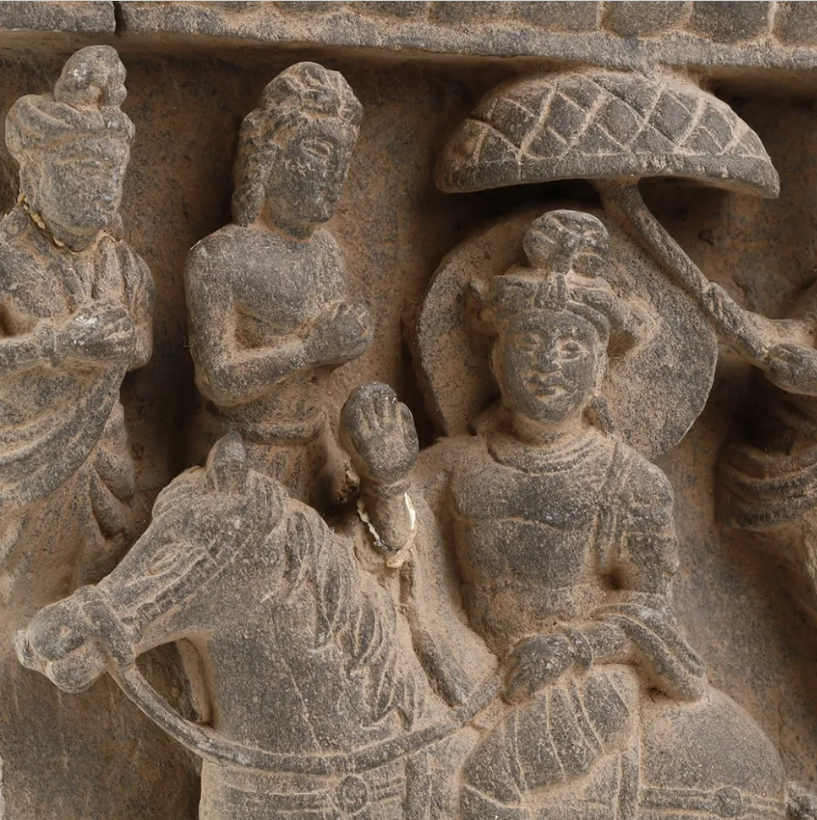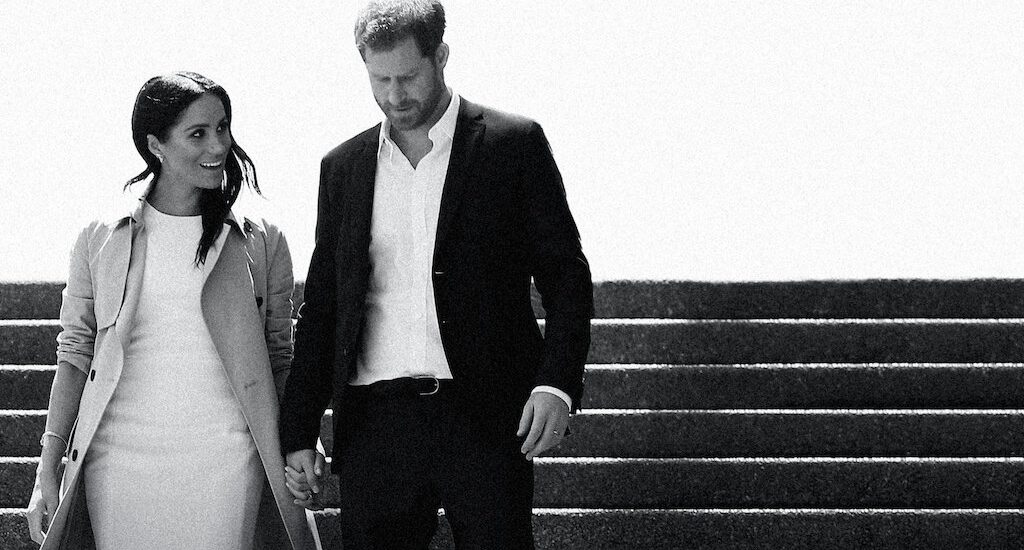Family. What a basic yet profound word. It is celebrated as the basic unit from which we draw our roots, comfort, and nurture. We are defined by its expectations, and will give anything to keep its integrity. Down the centuries, books, films, television shows, animation – all media – this fascination has not changed, especially in 2022, with the structure of the family being so fluid. The new biopic series Harry & Meghan proves this in obvious but also in unexpected ways.
While I found the series somewhat meandering, it is more relatable when it is seen as Harry and Meghan Windsor’s side of the story. They are both children of separated parents and do not want to, in the Duke of Sussex’s words, “repeat the same mistakes that perhaps our parents made.” Princess Diana’s shadow hangs over Harry’s head in every decision he makes about Meghan, from deciding when to reveal their relationship in October 2016, to his defence of Meghan amidst racially charged reporting and gossip, and finally, to their climatic break with the Windsors on 31 March, 2020.
As of this piece, Rotten Tomatoes has the show at 17 per cent based on 6517 ratings. On IMDB the statistics are at an unimpressive 4.5 out of 10, yet based on over a staggering 16,000 ratings. Many viewers evidently like spectacle and gossip, but, paradoxically, despise its sources. As children of the social media generation (they met over Snapchat), what the couple show to the world is carefully curated and smells of PR. However, it is hard to believe that they deliberately set out to hurt the late Queen and the rest of the royals. Their actions were not, as some in the tabloid media might suggest, meant to tarnish the royal family’s reputation. Indeed, Harry’s true enmity is with the tabloids; more specifically, the paparazzi (the “paps”) that dogged his mother after her separation from the now-crowned Charles III. There is a lot of harmful speech aimed at Harry, but especially at Meghan.
The “royal” aspect of this documentary is important and sparkly, but not at the core. The documentary acknowledges the primacy of the royal family in British public life and consciousness, but from the outset the documentary discloses that its members declined to comment, so there is no chance to get an impartial picture. Furthermore, the series continuously emphasizes just how little real power over their own lives the royals have: they live in a gilded cage, and as a historian on the show says, and have “very little autonomy to choose their own futures.” Perhaps that is the insight Harry had about his mother, and why he and Meghan eventually decided that, given unrelenting negative media coverage, could not build their own family in the shadow of the one that Meghan married into.
The tale of a family heir having to make a choice between keeping harmonious clan relations by submitting to the will (including cultural and racial prejudices) of the collective, or leaving and finding freedom to be who they want to be, is common to many dynasties. In fact, as uncomfortable as it might sound, family failure lies at the heart of the Buddhist story. I am reminded of the founder of Buddhism, Siddhartha Gautama, who while marrying the right lady, was stopped from realizing his destiny until the age of 29 by his own father. He was sheltered from every unpleasant thing and given every pleasure, and put in his own gilded cage. It was only upon encountering the Four Sights and the reality of suffering that the future Buddha sneaked out of the palace, forced to abandon his loving wife and infant son. He made a difficult call, and his story proves that even the Blessed One cannot make everybody happy.

Even in Classical China, when Buddhist preachers were arriving from India and Central Asia, polemics were written about how the Buddha’s story was offensive to Confucian values, especially in light of his refusal to take up his duty to succeed his father as a king. Indeed, he would have been something even greater had he done so: a Wheel-Turning Monarch (chakravartin). Nevertheless, he was meant for something even more. As a human being, the Buddha was probably not the best husband, and he could not have been a present father. The Confucians were right: he technically did abandon his family, the Shakya clan. Except that his reasons for doing so, and the movement he began, were so much bigger than Harry and Meghan’s story.
Nevertheless, the documentary’s interviews and recollections suggest that Harry’s motivation was, in some way, noble. It was, as he says, to “do everything I could to protect my family, especially after what happened to my mum.”
Harry and Meghan no doubt feel that they have been as a good father and mother should be, though, to the British public and press, perhaps not as a good son and daughter-in-law should be. As with the Buddha’s own experience, there was a price to pay. It is a common question asked in the wake of split or ruined families: who abandoned who?
I think the Buddha identified much more with his role as a mendicant, to the point that when he returned to his family after his Nirvana, he did his best, and succeeded, in bringing most of them, including Mahaprajapati, Yashodhara, and Rahula out of the Shakyas and into his true family, the monastic Order. It is likely that Harry sees himself as having “family” and then a “true” family. He is more his mother’s son than his father’s. He identifies much more with the outsider’s role, his bond with Meghan being distinct from his with the Windsors.
Ingrained in Confucian discourse about family ties (and in all social relations), is a concern for what the Stanford Encyclopedia of Philosophy describes as “ritual psychology,” or how proper performance will reform desires and provide the root for growing moral dispositions. “Confucius sought to preserve the Zhou ritual system, and theorized about how ritual and music inculcated social roles, limited desires and transformed character.” (Stanford Encyclopedia of Philosophy)
Yet across cultures, we see how countless families, royal or humble, fail this ritual psychology. World literature, from Oedipus Rex to Dream of the Red Chamber, is all about the failures, selfishness, dashed expectations, and conflicts of families. What is Shakespeare’s Romeo and Juliet if not youthful hope and love’s naivety crushed against the hard rocks of clan demands and grudges? Another of his works, Hamlet, climaxes with the entire Danish royal family, including the titular protagonist, dead. Harmony this is not.
“Family drama” sounds like something trifling and sensational today, but in reality, from great old bloodlines to the humblest of households, family drama was and is deadly serious.
As the Buddha proved, it is destiny, no matter the direction or divide.
See more
Harry & Meghan (IMDB)
Even if Harry and Meghan “win” for Netflix, they lose (Salon)
Confucius (Stanford Encyclopedia of Philosophy)
Qianlong Emperor’s Parenting Style: Supportive Father or ‘Tiger Dad’? (Sotheby’s)
Related features
Yasodhara: Retellings and Hagiographies of the Buddhist Feminine


